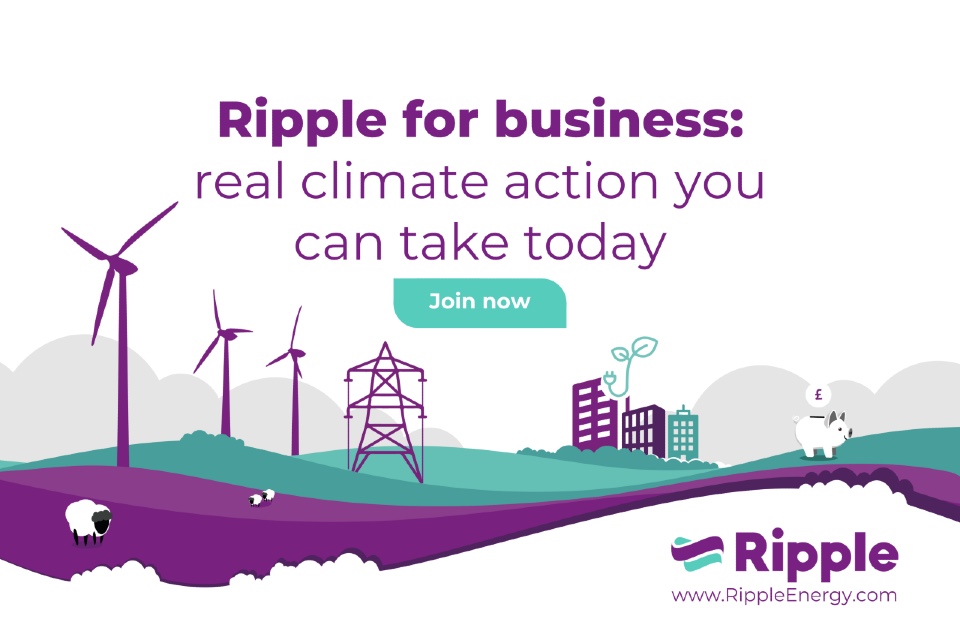By Mark Perera, CEO and founder, Vizibl
As a result of mounting environmental and social challenges affecting the entire globe, many organisations now place sustainability as a priority within their strategic goals. In this landscape, procurement has an enormous role to play in embedding sustainability into everyday practices and across the wider supply chain. With most of our impact on the environment and our communities sitting in the supply chain, clearly, we cannot become truly sustainable without our suppliers.
Sustainable procurement is an approach to the procurement process that embeds ESG (environmental, social, and governance) issues and corporate social responsibility (CSR) practices at the heart of its specifications and its process. But how can it be achieved, and what are some of the benefits and challenges that businesses need to understand?
Future-proofing your business
Research indicates that consumers are becoming increasingly eco and socially conscious about where they buy from. Consequently, the need for businesses to proactively pursue supplier sustainability is growing. With international bodies, governments, and investors also beginning to add pressure it is vital for businesses to future-proof their organisation.
In 2021, a landmark ruling saw the energy giant Shell held to account by courts and governments for the sustainability performance of its supply chain. The ruling saw the company compelled to raise its emissions reduction commitments. Importantly, the Dutch court system made these commitments applicable not only to their own operations but also to ‘the customers and suppliers of the group.’
Business investors are also beginning to demand more action. May 2021 saw Chevron shareholders vote in favour of a proposal to cut scope 3 emissions at their AGM, signalling frustration with the company’s dilatory approach to climate change.
In another case, Exxon Mobil witnessed an activist investor staging a coup on their board over the strategic direction the company was taking regarding sustainability. Hedge fund Engine No. 1 argued that the climate crisis posed “an existential threat to the [Exxon] business”. Exxon eventually lost three board seats to Engine No. 1 and the market responded in kind, with Exxon’s share price rising 1.2% the following day.
With the UK in the midst of yet another heat wave, we are experiencing a stark reminder that the challenge of the climate crisis is not going away. And as the lifespan of an S&P 500 company continues to dwindle as enterprise organisations attempt to meet increased challenges from changing stakeholder demands, technological progress, new startup business models, and more, it is imperative that businesses adapt to the new environment. Businesses that take pre-emptive action to expand their sustainability efforts in particular will be future-proofing their business against the rising tide of fines, regulatory changes, legal rulings, and investor action.
Common challenges to Sustainable Procurement
While there are clear and desirable benefits to achieving a Sustainable Procurement programme, there are challenges that remain which can derail the necessary efforts if targets are to be achieved.
For any programme to successfully launch and scale it must have the sponsorship of executive and senior leadership. Making the case for how sustainable procurement practices impact the organisation’s strategic ESG goals is key to securing this mandate. Without the buy-in of C-suite, procurement leadership, and supply chain leaders, individual practitioners will not be able to effect change at the scale required to deliver on the organisation’s goals.
One way to secure sponsorship is through constructing a business case for expanding Sustainable Procurement practices. A common method to do this is to ensure that the true cost of existing ways of working is accounted for in the business case, such as attaching a carbon cost to business-as-usual operations.
There is also the challenge of selecting, measuring, and tracking the multitude of metrics that fall under the banner of ESG. Knowing what to measure and how to standardise this across suppliers is difficult. This ‘analysis paralysis’ is a key factor in why many organisations are slow to get started on their sustainable procurement efforts, feeling incapable of taking action until they ‘know enough.’
At Vizibl, we counsel an approach of ‘controlling the controllables’ and focusing on what the business does know to overcome this challenge. For example, with supply chain emissions, many organisations will know where most of their scope 3 falls. They will also know which categories within that cohort tend to be emissions-intensive, how much they spend on those categories, and which suppliers they work with within them. Though this cannot replace a full, robust dataset detailing the current state of play, it provides a reliable place to start making improvements whilst waiting for the full data set to arrive.
Developing a successful Sustainable Procurement strategy
For sustainable procurement to truly flourish, organisations need to forge true “customer of choice” relationships with the suppliers who are most critical to delivering on their sustainability pledges.
“Customer of choice” refers to a buyer-supplier relationship founded on trust, transparency, and robust communication, in addition to the ethos of mutual benefit. By forging this relationship, both buyers and suppliers gain priority access to one another, and can effectively deliver on both the goals of the relationship and their individual organisations. Additionally, it makes it easier to flag any issues or areas for improvement as the partnership progresses.
To address the sustainability challenges facing large enterprises, existing solutions will not suffice. In a market high on ESG hurdles and low on green products and solutions, innovation will be key to satisfying the demand for fresh ideas. “Customer of choice” suppliers come armed with a wealth of subject matter expertise, knowledge of competitors and an intimate understanding of local markets, making “customer of choice” relationships a key driver of strategic supplier innovation.
The time is now
Last year, the United Nations declared that by 2030 the world must halve greenhouse gas emissions to prevent devastating climate change. Organisations and their supply chains have a massive part to play in these reduction efforts.
Whilst many have already developed and declared their ESG goals, more must be done. Business change is occurring, but particular focus must be applied to procurement and supply chain’s role in accelerating this transformation towards sustainable business practices. Developing sustainable procurement programmes alongside dependable, trusted suppliers will certainly be a huge step in meeting necessary targets.





